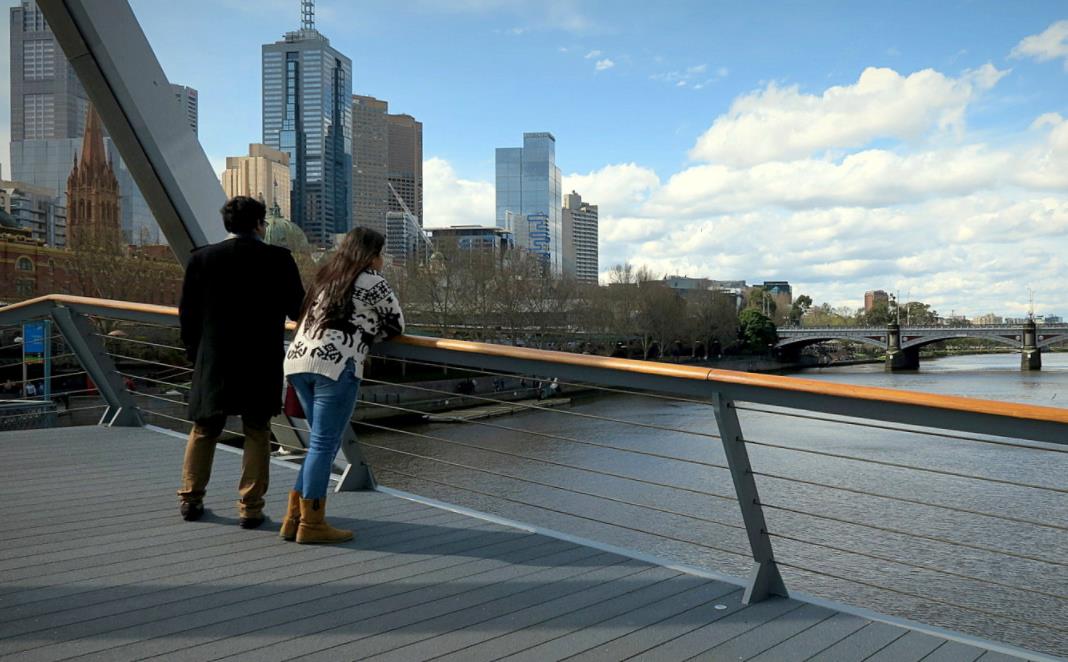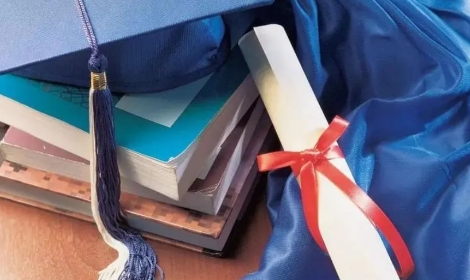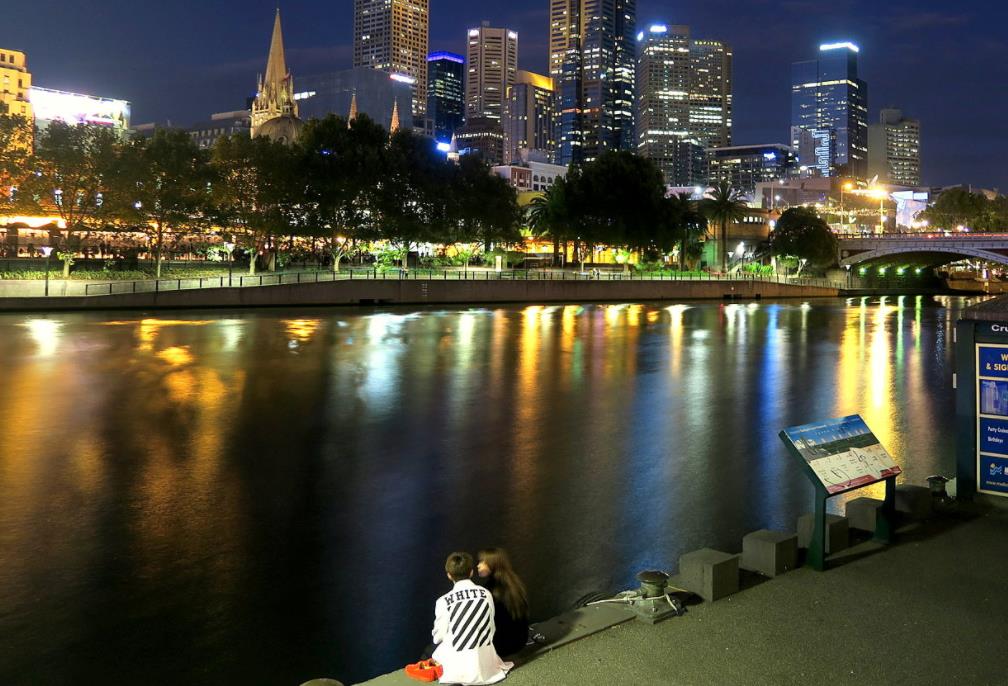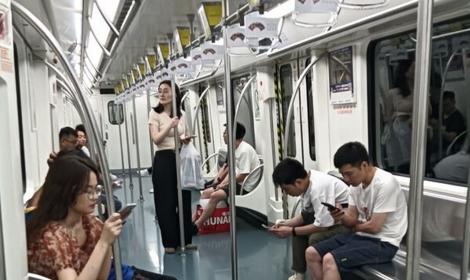我们何时以及为何会信任陌生人?为什么一些亚洲人通常不会信任陌生人?
正文翻译

To trust or not to trust? That’s the question we often ask ourselves when we meet someone for the first time or encounter strangers. Trust: it’s about believing others, taking their word and seeing the best in them.
相信还是不相信?这是我们第一次见到某人或遇到陌生人时经常问自己的问题。信任:就是相信别人,相信他们的话,看到他们最好的一面。
I’m not one who trusts easily. Generally, I avoid talking to people I don’t know, be it at social occasions or on the streets.
我不是一个轻易相信别人的人。一般来说,我会避免和陌生人说话,无论是在社交场合还是在大街上。
Trust. It’s embedded within the unconscious rituals of everyday life: walking to work, we trust passer-bys won’t stab us. We trust shopkeepers will give us the correct change at the cashier. We trust no chef spat into food we ordered. Trust. It’s about going forwards: we trust and travel to get on with our lives. And whether we trust others usually depends on where we’ve been and where we’re from.
信任根植于日常生活中无意识的行为中:比如走路去上班,我们相信路人不会刺伤我们。我们相信店主会在收银台找给我们正确的零钱。我们不相信厨师会在我们点的食物上吐痰。信任是关于继续前进的:我们信任他人,并为继续生活而不断前进。而我们是否信任他人通常取决于我们去过哪里,来自哪里。
Sometimes we hesitate to trust those we barely know because we’ve always kept “stranger danger” in mind. Better safe than sorry taking someone’s words and actions for what they seem. As Indonesian-born blogger Marcella Purnama writes on growing up in one of the numerous crime ridden Asian cities, she “wasn’t really taught to be nice to strangers. When someone asks for help, ignore them.” Trust, in this sense, is influenced by our upbringing.
有时,我们会犹豫是否要相信那些我们几乎不认识的人,因为我们总是把“陌生人很危险”这句话记在心里。宁可信其有,不可信其无。印尼的博主玛塞拉.普尔纳玛曾写道,她在犯罪猖獗的亚洲城市之一长大,"没有人教过她要善待陌生人,人们只是提醒她当有人向她寻求帮助时,不要理睬他们"。从这个意义上说,信任受到了我们的成长环境的影响。
When I went to primary school in Malaysia, my family lived in a high-security house. A massive wrought iron gate blocked our driveway’s entrance. A double-padlocked stainless steel grille gate blocked the front door of our house. ….sitting in the living room on a hot, humid weekend afternoon, the “ding” of an ice-cream pushcart filled the air. Mum and I hurried outside with some coins, and she flagged it down. I looked up at the tanned chap on the pushcart from behind the prison-like driveway gate, my hand feeling numb from clenching a cool icy pole packet. Instantly the ice-cream seller looked away, and my eyes darted to the ground. Never saw him again.
当我在马来西亚上小学的时候,我们住在一个戒备森严的房子里。一扇巨大的锻铁大门挡住了我们车道的入口,而我们家的正门是一扇双层不锈钢格栅门。在一个炎热潮湿的周末下午,我坐在客厅里,外面传来了冰淇淋推车走过的“叮叮”声。妈妈和我拿着一些硬币急忙跑到外面想去买冰淇淋,她示意商贩把推车停下来,我从监狱般的车道大门后面抬头和手推车旁那个晒得黝黑的小伙子对视了一下,卖冰淇淋的小伙子立刻把目光移开,我的目光也一下子瞥向了地面,再也没有看向他。
Time and time again cultural values play a part in whether we trust others, shaping the way we see the world. As a kid, I didn’t speak much and people stared at me – probably wondering why I was so quiet – and I shrank away, frightened. “The gweilos are only good at smooth talking,” dad also always said.
文化价值观一次又一次地影响着我们是否信任他人,影响着我们看待世界的方式。小时候,我不怎么爱说话,别人都盯着我看--可能是想知道我为什么这么安静--我吓得把身子蜷缩了起来。爸爸还常对我说,"那些鬼佬们只擅长花言巧语"。
And so in this diverse world, sometimes stereotypical perceptions get in the way of trust. In Australia, there is a lack of interpersonal trust between Indigenous and non-Indigenous Australians. Sometimes the “Us and Them” dichotomy stands between us of different heritage, sometimes racism. Or perhaps some of us are afraid of offending another culture or getting judged for our culture; we’d much rather keep to ourselves.
因此,在这个多元化的世界里,有时陈旧的观念会阻碍人们信任别人。在澳大利亚,土著和非土著澳大利亚人之间缺乏信任。"我们和他们"的二分法横亘在不同文化背景的我们之间,有时甚至达到了种族主义的程度。当然,有时也有可能是我们中的一些人害怕冒犯了别人的文化或害怕自己的文化受到别人的评判,我们更愿意保持我行我素。
At times whether we trust strangers depends on our personalities, not so much our background. We might simply be outgoing and others might gravitate towards that, and we in turn trust them. Or we might simply be shy and rather be alone.
有时候,我们是否愿意信任陌生人还可能取决于我们的个性,而不是我们的文化背景。有的人可能性格很外向,其他人可能会被其吸引,而他反过来也会信任他们。但有的人可能很害羞,宁愿自己一个人待着。
Whether we trust also depends on context. When we have things in common and click through mutual understanding. When one or the other is chatty, there’ll probably be light-hearted conversation to break the ice – little by little each of us opens up about ourselves and connect. In short, we trust when we’re comfortable around each other.
我们是否愿意信任陌生人也取决于环境。当我们有共同语言并通过相互理解而相处融洽时,当其中一人很健谈并能找到轻松愉快的话题来打破僵局时,我们彼此都会一点一点地敞开心扉,并试图建立联系。简而言之,当我们在彼此身边感到舒适时,我们就会信任对方。
When we trust someone new, we’re vulnerable. On one hand, you can’t really be sure if they have good intentions. On the other, going along with their word we might go on a new adventure, start a new chapter with them. That’s why we trust. To build bridges, build relationships from a single moment of faith. And perhaps we trust to earn trust back in return being the social creatures that we all are.
当我们选择信任一个以前不认识的人时,这有时会显得很莽撞,因为你还根本无法确定他们接近你是否出于好意。而相反,如果你选择尝试和他们相处下去,你也有可能会开始新的冒险,和他们一起开启新的篇章。这就是我们要信任别人的原因。搭建桥梁,建立关系,信任别人,我们相信我们可以赢得别人的信任作为回报,因为我们都是社会性生物。
When we trust someone, we take our chances. It’s a leap of faith. And a moment where we don’t wonder “what if”.
当我们信任别人时,我们就抓住了机会。这是一次信仰的飞跃。在这一刻,我们不再怀疑“如果……会怎样”。
Do you trust people you just met? Are you a people person?
你会信任刚认识的人吗?你是一个善于交际的人吗?

To trust or not to trust? That’s the question we often ask ourselves when we meet someone for the first time or encounter strangers. Trust: it’s about believing others, taking their word and seeing the best in them.
相信还是不相信?这是我们第一次见到某人或遇到陌生人时经常问自己的问题。信任:就是相信别人,相信他们的话,看到他们最好的一面。
I’m not one who trusts easily. Generally, I avoid talking to people I don’t know, be it at social occasions or on the streets.
我不是一个轻易相信别人的人。一般来说,我会避免和陌生人说话,无论是在社交场合还是在大街上。
Trust. It’s embedded within the unconscious rituals of everyday life: walking to work, we trust passer-bys won’t stab us. We trust shopkeepers will give us the correct change at the cashier. We trust no chef spat into food we ordered. Trust. It’s about going forwards: we trust and travel to get on with our lives. And whether we trust others usually depends on where we’ve been and where we’re from.
信任根植于日常生活中无意识的行为中:比如走路去上班,我们相信路人不会刺伤我们。我们相信店主会在收银台找给我们正确的零钱。我们不相信厨师会在我们点的食物上吐痰。信任是关于继续前进的:我们信任他人,并为继续生活而不断前进。而我们是否信任他人通常取决于我们去过哪里,来自哪里。
Sometimes we hesitate to trust those we barely know because we’ve always kept “stranger danger” in mind. Better safe than sorry taking someone’s words and actions for what they seem. As Indonesian-born blogger Marcella Purnama writes on growing up in one of the numerous crime ridden Asian cities, she “wasn’t really taught to be nice to strangers. When someone asks for help, ignore them.” Trust, in this sense, is influenced by our upbringing.
有时,我们会犹豫是否要相信那些我们几乎不认识的人,因为我们总是把“陌生人很危险”这句话记在心里。宁可信其有,不可信其无。印尼的博主玛塞拉.普尔纳玛曾写道,她在犯罪猖獗的亚洲城市之一长大,"没有人教过她要善待陌生人,人们只是提醒她当有人向她寻求帮助时,不要理睬他们"。从这个意义上说,信任受到了我们的成长环境的影响。
When I went to primary school in Malaysia, my family lived in a high-security house. A massive wrought iron gate blocked our driveway’s entrance. A double-padlocked stainless steel grille gate blocked the front door of our house. ….sitting in the living room on a hot, humid weekend afternoon, the “ding” of an ice-cream pushcart filled the air. Mum and I hurried outside with some coins, and she flagged it down. I looked up at the tanned chap on the pushcart from behind the prison-like driveway gate, my hand feeling numb from clenching a cool icy pole packet. Instantly the ice-cream seller looked away, and my eyes darted to the ground. Never saw him again.
当我在马来西亚上小学的时候,我们住在一个戒备森严的房子里。一扇巨大的锻铁大门挡住了我们车道的入口,而我们家的正门是一扇双层不锈钢格栅门。在一个炎热潮湿的周末下午,我坐在客厅里,外面传来了冰淇淋推车走过的“叮叮”声。妈妈和我拿着一些硬币急忙跑到外面想去买冰淇淋,她示意商贩把推车停下来,我从监狱般的车道大门后面抬头和手推车旁那个晒得黝黑的小伙子对视了一下,卖冰淇淋的小伙子立刻把目光移开,我的目光也一下子瞥向了地面,再也没有看向他。
Time and time again cultural values play a part in whether we trust others, shaping the way we see the world. As a kid, I didn’t speak much and people stared at me – probably wondering why I was so quiet – and I shrank away, frightened. “The gweilos are only good at smooth talking,” dad also always said.
文化价值观一次又一次地影响着我们是否信任他人,影响着我们看待世界的方式。小时候,我不怎么爱说话,别人都盯着我看--可能是想知道我为什么这么安静--我吓得把身子蜷缩了起来。爸爸还常对我说,"那些鬼佬们只擅长花言巧语"。
And so in this diverse world, sometimes stereotypical perceptions get in the way of trust. In Australia, there is a lack of interpersonal trust between Indigenous and non-Indigenous Australians. Sometimes the “Us and Them” dichotomy stands between us of different heritage, sometimes racism. Or perhaps some of us are afraid of offending another culture or getting judged for our culture; we’d much rather keep to ourselves.
因此,在这个多元化的世界里,有时陈旧的观念会阻碍人们信任别人。在澳大利亚,土著和非土著澳大利亚人之间缺乏信任。"我们和他们"的二分法横亘在不同文化背景的我们之间,有时甚至达到了种族主义的程度。当然,有时也有可能是我们中的一些人害怕冒犯了别人的文化或害怕自己的文化受到别人的评判,我们更愿意保持我行我素。
At times whether we trust strangers depends on our personalities, not so much our background. We might simply be outgoing and others might gravitate towards that, and we in turn trust them. Or we might simply be shy and rather be alone.
有时候,我们是否愿意信任陌生人还可能取决于我们的个性,而不是我们的文化背景。有的人可能性格很外向,其他人可能会被其吸引,而他反过来也会信任他们。但有的人可能很害羞,宁愿自己一个人待着。
Whether we trust also depends on context. When we have things in common and click through mutual understanding. When one or the other is chatty, there’ll probably be light-hearted conversation to break the ice – little by little each of us opens up about ourselves and connect. In short, we trust when we’re comfortable around each other.
我们是否愿意信任陌生人也取决于环境。当我们有共同语言并通过相互理解而相处融洽时,当其中一人很健谈并能找到轻松愉快的话题来打破僵局时,我们彼此都会一点一点地敞开心扉,并试图建立联系。简而言之,当我们在彼此身边感到舒适时,我们就会信任对方。
When we trust someone new, we’re vulnerable. On one hand, you can’t really be sure if they have good intentions. On the other, going along with their word we might go on a new adventure, start a new chapter with them. That’s why we trust. To build bridges, build relationships from a single moment of faith. And perhaps we trust to earn trust back in return being the social creatures that we all are.
当我们选择信任一个以前不认识的人时,这有时会显得很莽撞,因为你还根本无法确定他们接近你是否出于好意。而相反,如果你选择尝试和他们相处下去,你也有可能会开始新的冒险,和他们一起开启新的篇章。这就是我们要信任别人的原因。搭建桥梁,建立关系,信任别人,我们相信我们可以赢得别人的信任作为回报,因为我们都是社会性生物。
When we trust someone, we take our chances. It’s a leap of faith. And a moment where we don’t wonder “what if”.
当我们信任别人时,我们就抓住了机会。这是一次信仰的飞跃。在这一刻,我们不再怀疑“如果……会怎样”。
Do you trust people you just met? Are you a people person?
你会信任刚认识的人吗?你是一个善于交际的人吗?
评论翻译
twobrownfeet
I don’t trust strangers easily. Actually, I don’t trust people easily. But, I try not let it affect the conversations I make. I think it’s possible to strike a conversation with a person and maintain a fair distance. Sounds complex, but, it is possible. We’ve met many incredible and interesting people on our trips. I’d not get to know any of them if I’d stayed mum and wondered who they were.
我不会轻易相信陌生人。其实,我也不会轻易相信任何人。但是我会尽量不让这种不信任影响我和别人之间的谈话。我认为既能与人交谈,又能保持适当的距离是有可能的。虽然听起来很复杂,但这是有可能的。我们在旅途中会遇到很多不可思议的有趣的人,如果我保持沉默,我就没办法知道他们是谁,我也就没办法认识他们中的任何一个。
Mabel Kwong
I agree with you. We can talk about parts of our lives with someone when we’re getting to know them, but at the same time we withhold our deepest thoughts and secrets from them. Keeping distance, as you said
Very glad to hear you met many a nice people on your trips by trusting based on instinct. There really are nice people out there.
我同意你的看法。当我们开始了解某人时,我们可以和他们谈论我们生活的一部分,但与此同时,我们也对他们隐瞒了我们最深处的想法和秘密。正如你所说,保持距离。很高兴听到你在旅途中遇到了许多很好的人,这是一种基于直觉的信任,这个世界上真的有很多好人。
Ngobesing Romanus
It is important to be prudent about whom we trust. Even members of the same family may not be trusted.
对我们是否要选择信任别人要保持谨慎,这是很重要的。即使是同一个家庭的成员之间也可能彼此不信任对方。
Mabel Kwong
That is so true. Even the ones closest to us – or the ones whom we think are closest to us – might let us down when we least expect it. Trust, it’s a precious thing.
没错。即使是我们最亲近的人—或者我们认为最亲近的人—也可能在我们最意想不到的时候让我们感到失望。信任是一种很珍贵的东西。
Alex Hurst
I’ve been living in Japan for about five years, and the trust in people is pretty high here. Of course, trust and intimacy are totally different things, and Japan (I think) lacks in the latter. But it’s interesting to hear how trust was not a given in Malaysia.
我在日本生活了大约五年,在这里人们之间的信任度相当高。当然,信任和关系密切是完全不同的东西,(我认为)生活在日本的人们缺乏后者。但有趣的是,在马来西亚,连信任都是不存在的。
Mabel Kwong
Though I’ve never visited Japan, it comes across as one of the more trusting Asian cities, a city where the locals are always ready to help. After all, the city is so efficient in many aspects. It takes a while for one to get to know Malaysia…and it never hurts to be very careful there wherever you go.
虽然我从未去过日本,但它给人的印象是人们之间的信任度最高的的亚洲国家之一,当地人总是很乐于助人。毕竟这个国家在很多方面都很有效率。一个人需要一段时间才能了解马来西亚......在马来西亚,无论你走到哪里,都要非常小心。
anotherday2paradise
A very interesting article, Mabel. Yes, I think that trust can only come if we trust someone enough to get to know them better. I shudder now when I think back to how vulnerable I’ve been with absolute strangers when I was younger. but as I’ve got older, I’ve learned to trust no-one implicitly until that trust has been earned over time.
非常有趣的一篇文章,梅布尔。是的,我认为只有当我们足够了解一个人时,才会对他产生信任。现在每当我回想起我年轻时是多么容易相信陌生人时,我都感到不寒而栗。但随着年龄的增长,我学会了不要轻易信任任何人,除非这种信任是经过长时间的相处获得的。
Mabel Kwong
I can’t imagine you being young and reckless, Sylvia. You come across as such a level-headed person…then again, we all have our wild days in our youth.
Trust earned over time – the more we get to know someone, the more we will be able to gauge and predict their character, and feel if they are worth our time.
我无法想象你在年轻时会很莽撞,西尔维娅。你给人的印象是一个头脑冷静的人……但话说回来,我们在年轻的时候都有疯狂的时候。信任是随着时间积累起来的—我们对一个人了解得越多,我们就越能了解他们的性格,并决定他们是否值得我们花时间相处下去。
anotherday2paradise
I think I was naive rather than reckless. My parents didn’t really prepare me for what was out there, so I was very vulnerable.
我觉得我是天真而不是莽撞。我的父母并没有让我对外面的世界保持警惕,所以我很容易受到诱惑。
Cardinal Guzman
I live very close to the slum (in the slum some might say), which means we have more than our fair share of travelling gypsie thieves, rapists (mainly imported muslims), street violence and ‘home-grown’ junkies.
It’s quite a shady place: bikes have to be kept locked at all times and other things that you’d like to keep (e.g. your kids toys), must be kept inside a storage room in the basement or inside the apartment.
You can’t leave any valuables in your car overnight and even the barbeque/grill in our backyard is chained up and locked to a heavy table.
Here and there you can even see public bikes (bikes that you can rent on a day pass or on a yearly basis for practically nothing) that are stolen and locked by the thieves that stole them!
It’s tragic, but at the same time kind of funny: “I stole this bike and now I’ll lock it, so that no other dishonest thief can steal the bike that I stole. I worked my ass off stealing this bike, it’s mine now.”
我住的地方离贫民窟很近(也许有人会说我就是住在贫民窟里),这意味着我们这里有很多吉普赛旅行小偷、强奸犯(主要是外来的穆斯林)、街头行凶者和"土生土长"的瘾君子。这是个相当阴暗的地方:自行车必须一直锁着,其他你想保存的东西(如孩子的玩具)必须放在地下室或公寓的储藏室里。你不能把任何的贵重物品留在车里过夜,甚至我们后院的烧烤架也要用铁链锁在一张厚重的桌子上。
在这里或那里,你甚至可以看到公共自行车(就是那种你可以花很少的钱租一天或一年的自行车)被偷,并被偷车贼锁上了!这是一个悲剧,但同时也有点好笑:"我偷到了这辆自行车,现在我要把它锁起来,这样其他狡猾的小偷就偷不到我偷的自行车了。我拼了命才偷到了这辆自行车,现在它是我的了。"
Mabel Kwong
It certainly sounds like a dodgy part of town you live in. Not like a place where you would go wandering out on your own at night. Pity kids toys get stolen as well – I would be devastated if someone stole my favourite stuffed monkey
“You can’t leave any valuables in your car overnight ” That reminds me. In Malaysia, there are thieves who use scanners to scan the boot of your car and if it detects valuables, you will probably never see it again.
听起来你住的地方确实很不安全,不像是一个你能在晚上独自外出游荡的地方。连孩子们的玩具也会被偷真是太糟糕了,如果有人偷了我最喜欢的毛绒猴子,我会很伤心的。"你不能把任何的贵重物品留在车里过夜。"在马来西亚,有些小偷会用扫描仪扫描你的汽车后备箱,如果检测到贵重物品,你可能再也见不到它了。
lifeconfusions
I guess that’s just an Asian thing, Yes of course it can be about being an introvert or an extrovert nature in general but it has more to do with upbringing and place around where we grew up. I grew up listening to the same things you did, never to trust strangers (including not to take candies ) I find myself midway between an introvert and extrovert. It majorly depends on my mood if I’m chatty or not with people around me. But despite of that trusting them is something that is hard to come by. I never trust someone right away, someone asks for my phone number, or where I live, where I go to study, i immediately become uncomfortable. So I can totally relate with what you said in your post Mabel.
我想这是亚洲人的特点吧,是的,这当然可能与性格内向或外向有关,但更多的是与我们的成长环境和成长地点有关。我从小就听着和你一样的东西长大,即永远不要相信陌生人(包括不要吃陌生人给的糖果),我发现我的性格介于内向和外向之间。和周围的人聊不聊得来主要取决于我的心情。尽管如此,我还是很难信任别人。我从来不会马上信任别人,如果有人问我的电话号码,或者我住在哪里、在哪里学习,我就会马上感到不舒服。所以我完全能理解你在文章中所说的话,梅布尔。
Mabel Kwong
Never to take candies, awww. But I suppose what we were thought as kids about not trusting strangers has kept us level-headed all these years. Like you, when someone starts getting personal with me, the whole trust issue crosses my mind. I get jittery when they ask about where I work and live. These days people usually ask me for my Facebook but I really don’t post much there You really can never be too careful with who you let into your life.
永远不要吃陌生人给的糖果,哈哈。但我想我们小时候被灌输的不要相信陌生人的观念让我们这些年来保持了冷静。像你一样,当有人开始对我问很私人的问题时,我就会想到信任的问题。当他们问起我在哪里工作和生活时,我就会紧张不安。这些天有些人总是会问我的Facebook账号,但我真的不怎么在那里发帖。对于想让谁走进你的生活,你真的越小心越好。
restlessjo
Like Sylvia, I tend to err on the side of trusting rather naively, and I chat away to anyone who happens to be around, at a bus stop or wherever. I hate it when people pass me by without raising their eyes or smiling. We’re in this world together to make the best of things, aren’t we, and the world feels better to me when I smile and chat. But it’s interesting to observe the differences in society.
和西尔维娅一样,我也倾向于天真地相信别人,我会在公共汽车站或任何地方和周围任何一个人聊天。我讨厌人们经过我身边时,眼睛都不抬一下,也不笑一下。我们都共同生活在这个世界上,要让事情变得更好,不是吗?当我对别人微笑和与别人聊天时,我觉得这个世界变得更美好了。不过话说回来,能看到社会中的人与人之间的差异也很有趣。
Mabel Kwong
You sound like a very friendly person, Jo. Sometimes we really get a lot out of trusting strangers, like making a new friend for life and who knows what adventures that will take us. Yes, we’re really all in this world together and trust is actually what holds us all together
听起来你是个很友善的人,乔。有时候,信任陌生人真的会让我们收获到很多东西,比如会交到一个挚友,谁知道这会给我们带来什么样的冒险。是的,我们都生活在这个世界上,而信任其实是维系我们的纽带
Uday Narayanan
Mabel, I think both trust and skepticism are important and contribute in their own ways. When it comes to relationships, trust is priceless. That said, inquiry and skepticism have also been of great value especially in the growth and progress of human thoughts, ideas and beliefs.
梅布尔,我认为信任和怀疑都很重要,都有各自的作用。在人际关系中,信任是无价的,但话虽如此,探究和怀疑精神同样具有重要的价值,尤其是在人类思想、观念和信仰的成长与进步方面。
Mabel Kwong
When we’re curious about someone, often we’re inclined to trust them to get to know them better.
当我们对一个人感到好奇时,往往会倾向于信任他,从而更好地了解他。
I don’t trust strangers easily. Actually, I don’t trust people easily. But, I try not let it affect the conversations I make. I think it’s possible to strike a conversation with a person and maintain a fair distance. Sounds complex, but, it is possible. We’ve met many incredible and interesting people on our trips. I’d not get to know any of them if I’d stayed mum and wondered who they were.
我不会轻易相信陌生人。其实,我也不会轻易相信任何人。但是我会尽量不让这种不信任影响我和别人之间的谈话。我认为既能与人交谈,又能保持适当的距离是有可能的。虽然听起来很复杂,但这是有可能的。我们在旅途中会遇到很多不可思议的有趣的人,如果我保持沉默,我就没办法知道他们是谁,我也就没办法认识他们中的任何一个。
Mabel Kwong
I agree with you. We can talk about parts of our lives with someone when we’re getting to know them, but at the same time we withhold our deepest thoughts and secrets from them. Keeping distance, as you said
Very glad to hear you met many a nice people on your trips by trusting based on instinct. There really are nice people out there.
我同意你的看法。当我们开始了解某人时,我们可以和他们谈论我们生活的一部分,但与此同时,我们也对他们隐瞒了我们最深处的想法和秘密。正如你所说,保持距离。很高兴听到你在旅途中遇到了许多很好的人,这是一种基于直觉的信任,这个世界上真的有很多好人。
Ngobesing Romanus
It is important to be prudent about whom we trust. Even members of the same family may not be trusted.
对我们是否要选择信任别人要保持谨慎,这是很重要的。即使是同一个家庭的成员之间也可能彼此不信任对方。
Mabel Kwong
That is so true. Even the ones closest to us – or the ones whom we think are closest to us – might let us down when we least expect it. Trust, it’s a precious thing.
没错。即使是我们最亲近的人—或者我们认为最亲近的人—也可能在我们最意想不到的时候让我们感到失望。信任是一种很珍贵的东西。
Alex Hurst
I’ve been living in Japan for about five years, and the trust in people is pretty high here. Of course, trust and intimacy are totally different things, and Japan (I think) lacks in the latter. But it’s interesting to hear how trust was not a given in Malaysia.
我在日本生活了大约五年,在这里人们之间的信任度相当高。当然,信任和关系密切是完全不同的东西,(我认为)生活在日本的人们缺乏后者。但有趣的是,在马来西亚,连信任都是不存在的。
Mabel Kwong
Though I’ve never visited Japan, it comes across as one of the more trusting Asian cities, a city where the locals are always ready to help. After all, the city is so efficient in many aspects. It takes a while for one to get to know Malaysia…and it never hurts to be very careful there wherever you go.
虽然我从未去过日本,但它给人的印象是人们之间的信任度最高的的亚洲国家之一,当地人总是很乐于助人。毕竟这个国家在很多方面都很有效率。一个人需要一段时间才能了解马来西亚......在马来西亚,无论你走到哪里,都要非常小心。
anotherday2paradise
A very interesting article, Mabel. Yes, I think that trust can only come if we trust someone enough to get to know them better. I shudder now when I think back to how vulnerable I’ve been with absolute strangers when I was younger. but as I’ve got older, I’ve learned to trust no-one implicitly until that trust has been earned over time.
非常有趣的一篇文章,梅布尔。是的,我认为只有当我们足够了解一个人时,才会对他产生信任。现在每当我回想起我年轻时是多么容易相信陌生人时,我都感到不寒而栗。但随着年龄的增长,我学会了不要轻易信任任何人,除非这种信任是经过长时间的相处获得的。
Mabel Kwong
I can’t imagine you being young and reckless, Sylvia. You come across as such a level-headed person…then again, we all have our wild days in our youth.
Trust earned over time – the more we get to know someone, the more we will be able to gauge and predict their character, and feel if they are worth our time.
我无法想象你在年轻时会很莽撞,西尔维娅。你给人的印象是一个头脑冷静的人……但话说回来,我们在年轻的时候都有疯狂的时候。信任是随着时间积累起来的—我们对一个人了解得越多,我们就越能了解他们的性格,并决定他们是否值得我们花时间相处下去。
anotherday2paradise
I think I was naive rather than reckless. My parents didn’t really prepare me for what was out there, so I was very vulnerable.
我觉得我是天真而不是莽撞。我的父母并没有让我对外面的世界保持警惕,所以我很容易受到诱惑。
Cardinal Guzman
I live very close to the slum (in the slum some might say), which means we have more than our fair share of travelling gypsie thieves, rapists (mainly imported muslims), street violence and ‘home-grown’ junkies.
It’s quite a shady place: bikes have to be kept locked at all times and other things that you’d like to keep (e.g. your kids toys), must be kept inside a storage room in the basement or inside the apartment.
You can’t leave any valuables in your car overnight and even the barbeque/grill in our backyard is chained up and locked to a heavy table.
Here and there you can even see public bikes (bikes that you can rent on a day pass or on a yearly basis for practically nothing) that are stolen and locked by the thieves that stole them!
It’s tragic, but at the same time kind of funny: “I stole this bike and now I’ll lock it, so that no other dishonest thief can steal the bike that I stole. I worked my ass off stealing this bike, it’s mine now.”
我住的地方离贫民窟很近(也许有人会说我就是住在贫民窟里),这意味着我们这里有很多吉普赛旅行小偷、强奸犯(主要是外来的穆斯林)、街头行凶者和"土生土长"的瘾君子。这是个相当阴暗的地方:自行车必须一直锁着,其他你想保存的东西(如孩子的玩具)必须放在地下室或公寓的储藏室里。你不能把任何的贵重物品留在车里过夜,甚至我们后院的烧烤架也要用铁链锁在一张厚重的桌子上。
在这里或那里,你甚至可以看到公共自行车(就是那种你可以花很少的钱租一天或一年的自行车)被偷,并被偷车贼锁上了!这是一个悲剧,但同时也有点好笑:"我偷到了这辆自行车,现在我要把它锁起来,这样其他狡猾的小偷就偷不到我偷的自行车了。我拼了命才偷到了这辆自行车,现在它是我的了。"
Mabel Kwong
It certainly sounds like a dodgy part of town you live in. Not like a place where you would go wandering out on your own at night. Pity kids toys get stolen as well – I would be devastated if someone stole my favourite stuffed monkey
“You can’t leave any valuables in your car overnight ” That reminds me. In Malaysia, there are thieves who use scanners to scan the boot of your car and if it detects valuables, you will probably never see it again.
听起来你住的地方确实很不安全,不像是一个你能在晚上独自外出游荡的地方。连孩子们的玩具也会被偷真是太糟糕了,如果有人偷了我最喜欢的毛绒猴子,我会很伤心的。"你不能把任何的贵重物品留在车里过夜。"在马来西亚,有些小偷会用扫描仪扫描你的汽车后备箱,如果检测到贵重物品,你可能再也见不到它了。
lifeconfusions
I guess that’s just an Asian thing, Yes of course it can be about being an introvert or an extrovert nature in general but it has more to do with upbringing and place around where we grew up. I grew up listening to the same things you did, never to trust strangers (including not to take candies ) I find myself midway between an introvert and extrovert. It majorly depends on my mood if I’m chatty or not with people around me. But despite of that trusting them is something that is hard to come by. I never trust someone right away, someone asks for my phone number, or where I live, where I go to study, i immediately become uncomfortable. So I can totally relate with what you said in your post Mabel.
我想这是亚洲人的特点吧,是的,这当然可能与性格内向或外向有关,但更多的是与我们的成长环境和成长地点有关。我从小就听着和你一样的东西长大,即永远不要相信陌生人(包括不要吃陌生人给的糖果),我发现我的性格介于内向和外向之间。和周围的人聊不聊得来主要取决于我的心情。尽管如此,我还是很难信任别人。我从来不会马上信任别人,如果有人问我的电话号码,或者我住在哪里、在哪里学习,我就会马上感到不舒服。所以我完全能理解你在文章中所说的话,梅布尔。
Mabel Kwong
Never to take candies, awww. But I suppose what we were thought as kids about not trusting strangers has kept us level-headed all these years. Like you, when someone starts getting personal with me, the whole trust issue crosses my mind. I get jittery when they ask about where I work and live. These days people usually ask me for my Facebook but I really don’t post much there You really can never be too careful with who you let into your life.
永远不要吃陌生人给的糖果,哈哈。但我想我们小时候被灌输的不要相信陌生人的观念让我们这些年来保持了冷静。像你一样,当有人开始对我问很私人的问题时,我就会想到信任的问题。当他们问起我在哪里工作和生活时,我就会紧张不安。这些天有些人总是会问我的Facebook账号,但我真的不怎么在那里发帖。对于想让谁走进你的生活,你真的越小心越好。
restlessjo
Like Sylvia, I tend to err on the side of trusting rather naively, and I chat away to anyone who happens to be around, at a bus stop or wherever. I hate it when people pass me by without raising their eyes or smiling. We’re in this world together to make the best of things, aren’t we, and the world feels better to me when I smile and chat. But it’s interesting to observe the differences in society.
和西尔维娅一样,我也倾向于天真地相信别人,我会在公共汽车站或任何地方和周围任何一个人聊天。我讨厌人们经过我身边时,眼睛都不抬一下,也不笑一下。我们都共同生活在这个世界上,要让事情变得更好,不是吗?当我对别人微笑和与别人聊天时,我觉得这个世界变得更美好了。不过话说回来,能看到社会中的人与人之间的差异也很有趣。
Mabel Kwong
You sound like a very friendly person, Jo. Sometimes we really get a lot out of trusting strangers, like making a new friend for life and who knows what adventures that will take us. Yes, we’re really all in this world together and trust is actually what holds us all together
听起来你是个很友善的人,乔。有时候,信任陌生人真的会让我们收获到很多东西,比如会交到一个挚友,谁知道这会给我们带来什么样的冒险。是的,我们都生活在这个世界上,而信任其实是维系我们的纽带
Uday Narayanan
Mabel, I think both trust and skepticism are important and contribute in their own ways. When it comes to relationships, trust is priceless. That said, inquiry and skepticism have also been of great value especially in the growth and progress of human thoughts, ideas and beliefs.
梅布尔,我认为信任和怀疑都很重要,都有各自的作用。在人际关系中,信任是无价的,但话虽如此,探究和怀疑精神同样具有重要的价值,尤其是在人类思想、观念和信仰的成长与进步方面。
Mabel Kwong
When we’re curious about someone, often we’re inclined to trust them to get to know them better.
当我们对一个人感到好奇时,往往会倾向于信任他,从而更好地了解他。









